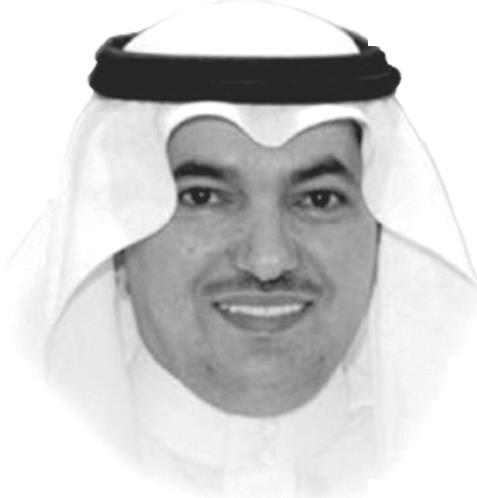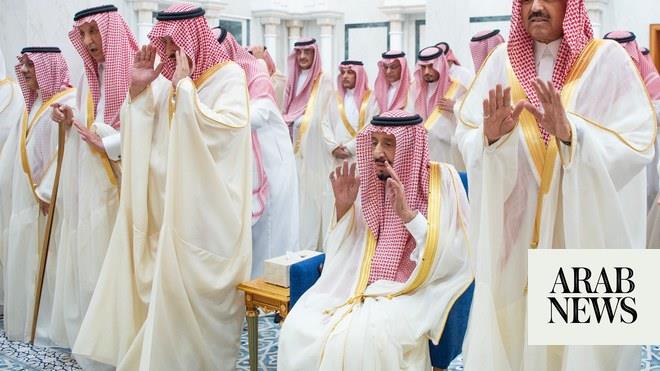
Crown Prince Mohammed bin Salman’s interview with Fox News, which aired on Sept. 21, attracted huge attention both regionally and globally. This is normal, as there is a huge desire by world leaders to listen to the architect of the Saudi national project, about which reports are incessantly circulating, to the point that almost everybody in the world is talking about it.
This includes the comprehensive transformation the Kingdom is witnessing, as well as the pioneering position it has carved out in the region as the most influential promoter of security and stability. In addition, Saudi Arabia is positioning itself among the major powers, presenting itself as an indispensable force when it comes to economic, political and security considerations.
The crown prince’s remarks on relations with the US were the most important in the context of the Kingdom’s foreign policy, especially as the ties between the two sides have been the subject of extensive debate in recent years. The interview revealed that there are diplomatic efforts and understandings underway that could usher in a new chapter in US-Saudi relations.
There is no doubt that these ties have been significantly damaged under President Joe Biden. His administration has reevaluated the US’ relations with the Kingdom from a partisan perspective, effectively paying no heed to the strategic partnership between the two sides that has secured America’s interests in the region over the past eight decades. The disagreements between the two sides have encompassed some regional and global issues, in light of the decline in the US’ interests and presence in the Middle East.
There are diplomatic efforts and understandings underway that could usher in a new chapter in US-Saudi relations
Dr. Mohammed Al-Sulami
Moreover, the US has exerted pressure on the Kingdom regarding a host of issues, including prompting it to normalize relations with Israel and join the Abraham Accords. In doing so, the US administration has desired to make gains similar to that of the Trump administration following the agreements signed between Israel on the one hand and the UAE, Bahrain, Morocco and Sudan on the other. This is in addition to exerting pressure on Riyadh to increase its oil exports to reduce energy prices, which surged in the aftermath of the Russian invasion of Ukraine. This showed heedlessness to Saudi Arabia’s interest in achieving a supply-demand balance and stabilizing global energy prices.
What is more, the US is concerned about the Kingdom’s foreign policy approach — regionally and globally — including its normalization of relations with Iran in light of the mounting differences between Washington and Tehran over the nuclear issue, as well as Saudi Arabia’s growing ties with China, which has a plan to restructure the current global world order and curb the US’ domination. The US also has reservations about the Kingdom’s relations with Russia, which is engaged in an indirect confrontation with America and has a desire to regain global prestige. Finally, the Saudi bid to join BRICS, a bloc of emerging markets that is deemed to oppose the West’s clout, has raised concerns in Washington.
During his interview, the crown prince set the record straight on all these issues. He clarified the well-established Saudi position on the normalization of relations with Israel, which requires arriving at an equitable resolution to the Palestinian cause. He also reiterated the course of normalizing relations with Iran and emphasized the pursuance of an energy policy that strikes a balance between a stable market and equitable prices. He defended Saudi Arabia’s relations with Russia and China, as well as its position toward the Ukraine crisis.
The crown prince’s positions on all these issues were decisive, reflecting a confidence in the soundness and objectivity of the Saudi stance. They also reiterated Riyadh’s willingness to pursue an active and effective foreign policy that places Saudi national interests above anything else. This includes diversifying partnerships on the global stage, carving out a global position, achieving regional stability and placing the Kingdom at the heart of regional and global dynamics. This fits its potential, resources, position and role and — more importantly — displays its firmness in the face of pressure and blackmail, while working to establish balanced relations.
The two sides are now a stone’s throw from what we could call their second era of strategic relations
Dr. Mohammed Al-Sulami
Perhaps the US still has not absorbed the enormous transformation in Saudi foreign policy, instead basing its convictions on past perceptions and the historical course of relations, in which the realization of interests had always been one-sided. However, it appears that Washington has begun to grasp, firstly, its incorrect assessment and miscalculations regarding the Kingdom and, secondly, how it was mistaken to undervalue its significance as a strategic partner and ally, especially against the backdrop of the ongoing changes that show Riyadh to be an important, indispensable ally in case the US wants to retain its regional clout and its pioneering global role.
It is fair to say that there has been a radical shift in the assessment of US foreign policy toward Saudi Arabia. Since last year — May 2022, to be exact, according to a US State Department report — Saudi-US relations have been viewed in the context of a long-term security relationship that is not devoid of wrangling, from which the US benefits from Saudi human and material support that serves its international ambitions.
But in its report issued in June, titled “United States and Saudi Arabia Relationship: Eight Decades of Partnership,” the US modified the aim of its relations with the Kingdom. It reiterated that Washington “continues to partner with Saudi Arabia on political, security, counterterrorism, economic, and energy issues, including clean energy innovation, to advance our common vision for a more peaceful, secure, prosperous, and stable Middle East.”
Saudi Arabia has succeeded in imposing a different course of relations since that date. This is evidenced by the interactions seen at the G20 summit in India in September, the meeting between the crown prince and Biden on the summit’s sidelines and the cooperation on the India-Middle East-Europe Economic Corridor project. This corridor shows the US administration’s appreciation of not only the Kingdom’s role in the region, but also the place it deserves on the global stage.
This is reflected in the crown prince confirming during his interview the ongoing negotiations to sign a defense cooperation pact between the two sides that will surely enhance US interests as well. This potential pact will save great efforts and headaches on the part of Saudi Arabia, thus preventing it from looking elsewhere to forge partnerships. The two sides are now a stone’s throw from what we could call their second era of strategic relations.
It is expected that Saudi-US relations will shift from solely focusing on security matters to also encompassing wider issues, reflecting today’s realities and Saudi Arabia’s current regional and global standing. Of course, this will be a huge success for Riyadh and an outcome of the Kingdom’s effectiveness in managing its foreign policy issues and undergoing major transformations.
To conclude, it could be said that the crown prince’s confidence in himself, the potential of his nation and the long-term, sustainable vision for the future of the Kingdom that he has outlined in cooperation with his aides was visible in his interview. He homed in on capturing the attention of the American and global audience by choosing to conduct the interview in English, as well as by making convincing arguments that reflect the reality of the man standing behind the Saudi national project.
Perhaps this article is not sufficient in demonstrating the Saudi national project. However, the comments made by policymakers and pundits following the interview help in building an accurate picture of the Kingdom’s rapid progress, advancement and transformations. What is more, the crown prince displayed sharpness and an in-depth knowledge of all foreign policy issues, as well as awareness of the scope of Saudi Arabia’s capabilities and tools and how best to employ them in line with the country’s national interests. This is especially relevant in the context of the Kingdom’s relations with the US, which are at a stage that is deemed to be one of the most sensitive in their history and in light of the regional and global uncertainty.












